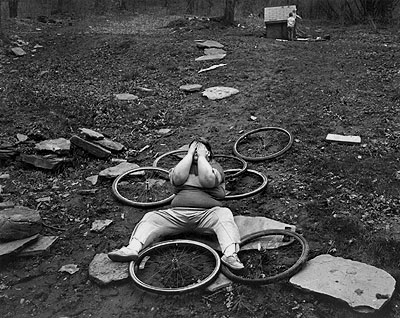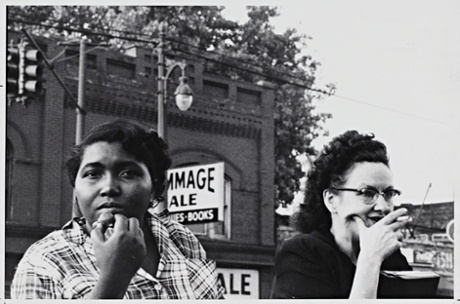Pema
For the next few weeks we’re going to be looking at a book by Pema Chodron called When Things Fall Apart. And just to underline the fact that reading this book is going to be a major bit of cheer the book’s subtitle reads: Heart Advice for Difficult Times. Even the act of picking up the book, or listening to talks about the book, is a way of leaning closer, of leaning in towards difficult times.
A few words about Pema. Her friends used to call her Deirdre, Deirdre Blomfield-Brown. She went to a swanky private prep school, before graduating from the University of California at Berkeley. She married got divorced, married again, moved to New Mexico, became a teacher and had two kids. And then everything changed.
Becoming a Buddhist
Pema (http://zenmoments.org/pema-chodron-when-things-fall-apart/): “Well it’s interesting I’m often asked: well how did you become a Buddhist? And I always say well I became a Buddhist because I hated my husband. (laughs) In my second marriage I was innocently drinking a cup of tea in front of our house in New Mexico on this beautiful day and my husband walked around the corner and told me that he was having an affair with somebody and that he wanted a divorce. Then it turned out he had been having quite a few affairs with quite a few somebodies.
“I was so undone by this. I’ve met a lot of people since that for some reason… divorce is always painful, and what you feel is betrayal is always very painful, but sometimes more than other times, something it’s like an annihilation. I could not get any ground under my feet. I felt so much anger and so much terror at my anger, and all of this was very unfamiliar to me.
“I had managed pretty successfully up to that point in my life, I think I was 35, to be easy going and friendly, warm hearted and always looking on the bright side and wow, that was gone. I kept having all these fantasies about burning down his house, hurting her child, breaking all the windows. It was heavy duty. I was afraid of my anger but there it was, so I started looking in a major way, I was looking to try to find some ground.”
When I see Deirdre Pema on Youtube, dressed in her monk’s robes, talking about burning someone’s house down, it makes me feel closer to her. She’s so human. My friend Erin asked me about this summer: did the summer make you human? She is telling me that the practice, her practice, doesn’t leave out wanting to burn someone’s house down, it includes everything, every difficult feeling.
But I’m puzzled about the way she ends her riff. She says that her bad feelings surprised her, and that they made her start looking, “trying to find some ground.” What does that mean? How do you find your ground? (discussion)
(One part of her life was ending, but every ending is also a beginning.)
Stop
The assignment, the task, was to dish on the first three chapters, but as usual, I opened the book and got stuck on the very first page of the introduction. So much of this practice has to do with stopping doesn’t it? Moments of stopping. Of stepping out of the busy flow of events, of waiting, of coming back to the breath, of taking a moment. I have many moments like that when I read Pema’s books. She lays down sentences that feel like they will take me the rest of my life to understand, or even: to live. Her books ask me this question: how do you live these words?
“Things don’t really get solved. They come together and they fall apart. Then they come together and fall apart again. It’s just like that. The healing comes from letting there be room for all of this to happen: room for grief, for relief, for misery, for joy.”
Talk Practice
Every Friday morning I get together with Christi-an, who some of you know, and we have a talking practice together. For twenty minutes person A talks, then for twenty minutes person B talks. And when the talking is over we don’t make suggestions about what the other person should do, we’re not trying to fix each other. In other words, Christi-an doesn’t look at me as a person who needs to be fixed, she’s just there to bear witness. To create space, to give this gift of space. This space is the most important thing that has ever happened to me at Gravity. And this space is the same space, the same room, that Pema talks about when she says:
“Things don’t really get solved. They come together and they fall apart. Then they come together and fall apart again. It’s just like that. The healing comes from letting there be room for all of this to happen: room for grief, for relief, for misery, for joy.”
First Session
It is a commonplace amongst psychotherapists that in the very first session the patient, the analysand, will tell you not only about their problem or difficulties but even how those difficulties might be approached. The cliché says that a stranger walks into a shrink’s room for the first time and spills it all out, and then all the other sessions are about finding a way back to that first encounter.
Loving Kindness
In the introduction to her book, Pema lays down a long sentence that seems to summarize her entire project. She notes that this book came out of a box of unsorted talks she had delivered over the years, and then she notices a thread, a thread of continuity. There’s something that ties all these talks together. “Gradually, as I read more, I began to see that in some way, no matter what subject I had chosen, what country I was in, or what year it was, I had taught endlessly about the same things: the great need for maitri (loving-kindness toward oneself), and developing from that the awakening of a fearlessly compassionate attitude toward our own pain and that of others.”
How do you practice maitri, this loving-kindness toward oneself? I can think of so many ways I don’t do this practice, or when I find this practice difficult. When my young and easy-going and beautiful friend Caspar comes to visit, for instance, I find that I am forever comparing myself to him, and in these comparisons he is always number one while I am number two or number two hundred, or at least something less. Comparing myself to others is a reliable way of suffering, and one I find hard to resist.
When I started to learn about yoga asana, the physical practice of yoga, I was drawn to ashtanga, I loved to work very hard, if I wasn’t feeling some pain, then I wasn’t practicing correctly. This led me to certain teachers who didn’t feel so good about themselves, and they would project this lack of self-love into their practice, and demand these harsh, overly strict, overly disciplined practices. That’s the kind of person I wanted to practice with. But slowly, over time, and because I am an old person, and not one of those young perfect yoga people I see rolling out of another sweat soaked class, I can’t really do those difficult poses, I can’t keep up, so now I’ve started seeing very different kinds of teachers. These teachers are usually older, and often they’ve been injured. And they’ve used their injuries as a path. You hear this over and over again in the dharma. The wound is the path. How have you been wounded? That becomes your path. And these teachers have used their injuries not to double down, and create even tighter, sharper, harder classes, but instead they emphasize things like: noticing what you are feeling, and taking care of yourself, and being your own authority. This is the way they practice maitri (loving-kindness toward oneself) and then they project it towards others.
In the Buddhist frame of things, the invitation to practice almost always begins within a personal frame. The practice of non-harming doesn’t mean pointing your finger: you’re harming and you’re harming. It means looking inward and asking: where do I cause harm? The practice of honesty means asking: where am I finding it difficult to be honest? And the practice of extending loving-kindness to others begins with giving loving-kindness to yourself.
There are some activities where I feel like an adult. But in most things I am a helpless child. So I need to ask for your help, I hope you can help me out. How do you extend loving-kindness to yourself?



